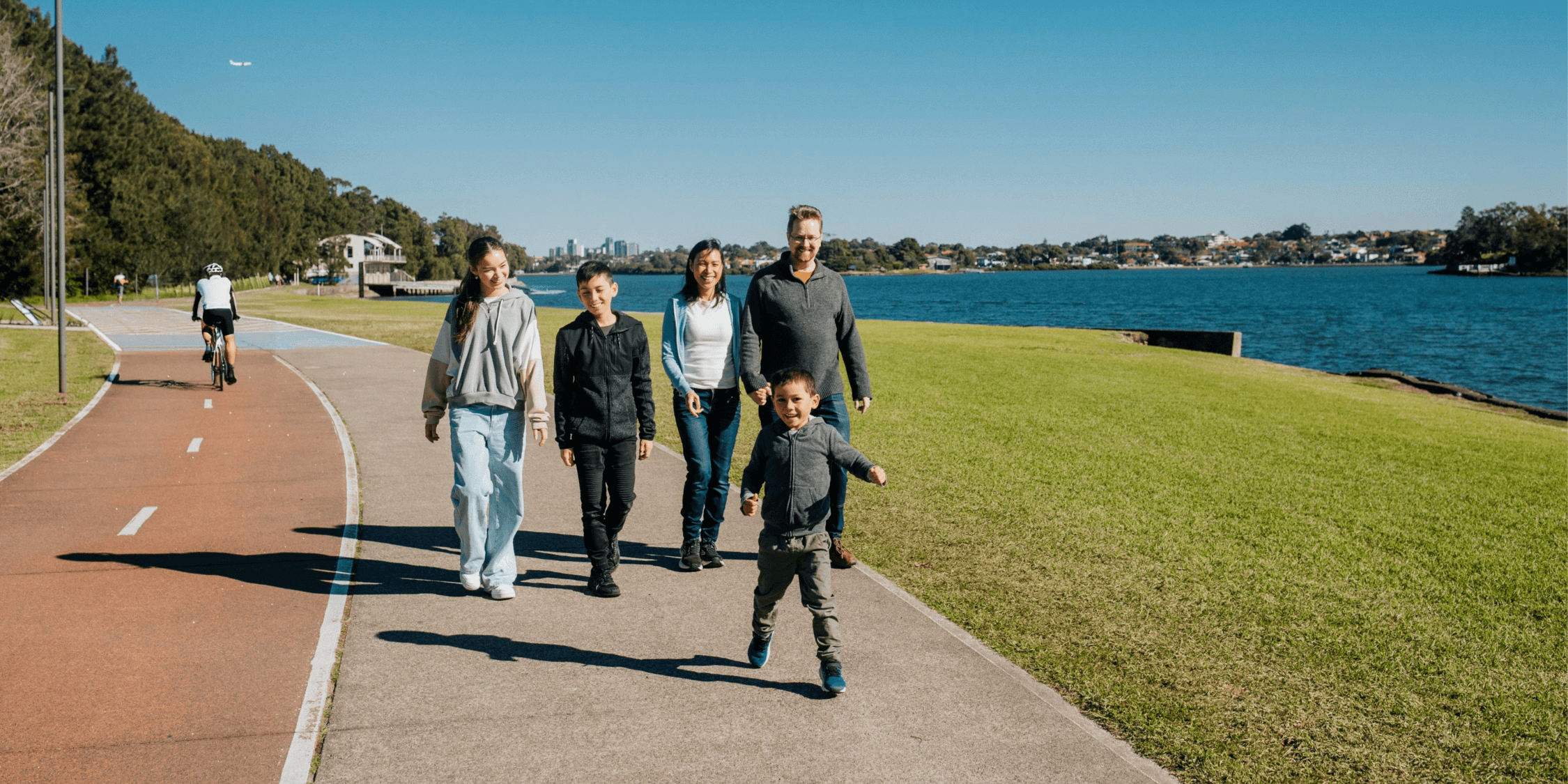Callan Park Access, Movement and Parking Strategy
Greater Sydney Parklands is developing an access, movement and parking strategy for Callan Park to make it safer and easier for people to get around. This strategy supports the plan of management by defining a long-term plan to guide how people move around Callan Park into the future.

The draft strategy was publicly exhibited for community and stakeholder feedback from 25 September to 29 October 2025.
Callan Park Access, Movement and Parking Strategy (PDF)(6.8 MB)
The draft strategy supports the Callan Park Plan of Management 2025 to 2035. The draft plan of management was publicly exhibited for community and stakeholder feedback from 25 September to 29 October 2025.
What is an access, movement and parking strategy?
The Strategy will guide interim and long-term changes to how people move around Callan Park now and into the future. It defines a long-term pedestrian, cycle, vehicular movement, and parking strategy for Callan Park, which addresses open space access needs, considers current and future uses, reduces pedestrian and vehicular conflict and manages parking.
The strategy focuses on three key areas:
- Safety and circulation - making it safer and easier to move around Callan Park
- Car parking - providing a sustainable level of parking that responds to current and future uses.
- Access and connections - helping people move easily through the park and connect with nearby areas.
Public exhibition
We invite your feedback on the draft strategy. To have your say:
- complete the online feedback form
- make a submission via email to [email protected]
- To find out more, register for the online information session on Thursday 16 October, 6 pm to 7:30 pm
- attend a pop-up information session
| Date | Time | Venue |
| Saturday 11 October | 8am–10am | Orange Grove Market |
| Saturday 11 October | 11am–1pm | Balmain Road entry (near the Callan Park War Memorial) |
| Saturday 18 October | 9am–11am | Waterfront Green near amenities block |
| Saturday 25 October | 9am–11am | Waterfront Drive (grass area near Callan Point) |
The public exhibition period has now closed, and feedback is being reviewed.
Frequently asked questions
Centennial Park and Moore Park Trust (CPMPT) owns 38 of the 61 hectares of Callan Park, which is managed by Greater Sydney Parklands. This includes the waterfront and central park areas. NSW Health manages the remaining areas. Some small pockets of land along the waterfront are also owned by Transport for NSW.
The draft Access, Movement and Parking Strategy was prepared alongside the draft Plan of Management. The strategy supports the Plan of Management’s strategic direction 3 - Create a safe, accessible and connected park, and provides further information on proposed changes over time to address safety and circulation, car parking and access and connections.
Have your say – both draft documents are on public exhibition for community and stakeholder feedback from 25 September to 29 October 2025.
Transitioning Callan Park from a former hospital use to a recreational environment will take time. The long-term plan in the Strategy for pedestrian, cycle, and vehicular movement and parking in Callan Park provides a focus for future funding applications over time. We will work to move toward the long-term outcome with interim measures and pilot projects in the short term.
Waterfront Drive will be closed to vehicles to improve safety for pedestrians and reduce conflict with cars. Alternative options will be provided to accommodate parking displaced from Waterfront Drive.
Delivery of the Wharf Road car park will be considered in the context of other parking being provided to ensure parking displaced from Waterfront Drive is accommodated.